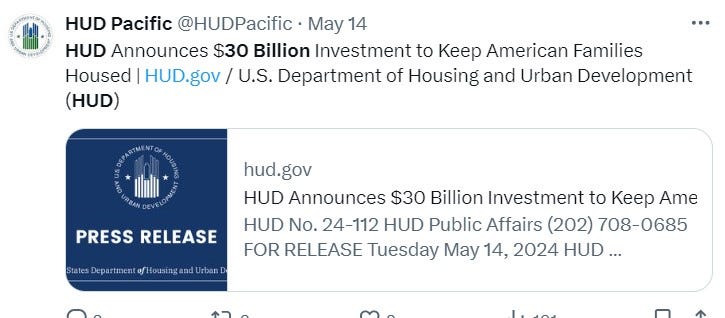Section 8 applications nationwide paused as program runs out of money
Program just got $30 Billion three months ago.
DETROIT, Mich - The Housing Choice Voucher program, previously known as Section 8, has been put on pause nationwide due to a lack of funding according to CAM Detroit
The following is the statement on the CAM Detroit website:
“The HCV program, administered by MSHDA, helps families by covering rent costs that exceed 30% of their income, assisting over 29,000 families, including many who are homeless or have disabilities. Currently, there’s a nationwide $300 million shortfall in funding, prompting MSHDA to stop new entries to the waiting list and slow down the leasing process. If you’re on the waiting list, no new vouchers are being issued unless you are part of the (non Detroit) VASH program, and existing applications are being managed with the available resources. Planned improvements include moving to paperless applications, providing updates via text and email, and reviewing policies based on feedback from affected groups. MSHDA is also strengthening local support networks and advocating for more funding and better treatment of homeless individuals.”
I reached out to the MSHDA and did not receive a response.
According to NBC Montana, Mitch Staley, the Chief Marketing Officer with the Montana Department of Commerce said they had no choice to put that program on hold because of decreased funding disbursements from the U.S. Department of Housing and Urban Development.
If you are not a subsribed to my email do so now for FREE. If you are able to become a paid subscriber it would help my mission to continue!
In May of this year the Housing and Urban Development agency annoucned $30 billion in renewal funding for the Housing Choice Voucher Program (HCV). They said the funding will help Public Housing Authorities (PHAs) continue to provide assistance to families and individuals who are in need of affordable housing options.
Three months later the money has dried up.
Where has the money gone?
The U.S. Department of Housing and Urban Development (HUD) has allocated significant resources to support migrants, particularly those experiencing homelessness. For the fiscal year 2024, HUD has continued its efforts to address homelessness, which includes assisting migrant populations. One of the major initiatives is the Continuum of Care (CoC) program, through which HUD allocated $2.8 billion to help individuals and families, including migrants, move into permanent housing.
Congressman Bryan Steil from Wisconsin questioned Housing and Urban Development Secretary Secretary Marcia L. Fudge if any of the HUD budget is being divereted to pay for illegal migranst.
Fudge acknowledged that she was unaware of the exact amount of taxpayer dollars being used to house illegal migrants. Steil requested that Fudge obtain this information and follow up with him, but it appears that no response has been provided yet.
Rep. Steil followed up with Fudge and she said she would hope that U.S. citizens are not being put out because non American citizens are getting funding.
Housing and Urban Development does have a program called the “Offfice of Field Policy and Management” which is committed to supporting new Americans such as refugees and other newcomer populations find safe, permanent, and affordable housing by providing access to housing counseling and sharing important resources regarding HUD programs and services.
There are some situations where individuals who are not U.S. citizens, including certain categories of migrants, may be eligible for HUD assistance, depending on their immigration status:
Eligible Non-Citizens: HUD programs, such as public housing and Section 8, may be available to non-citizens who have eligible immigration status, such as legal permanent residents, refugees, and asylees. These individuals can receive the same housing assistance as U.S. citizens.
Mixed-Status Families: In cases where a household includes both eligible non-citizens and ineligible individuals (such as undocumented family members), the family may still receive HUD assistance. However, the amount of assistance will be prorated based on the number of eligible members.
Emergency Situations: In certain emergency situations, temporary shelter and assistance might be provided to anyone in need, regardless of immigration status, especially in the aftermath of natural disasters or other crises. This type of assistance is typically short-term and focused on immediate safety and shelter, rather than long-term housing solutions.
HUD itself does not directly fund or manage programs specifically for housing illegal or undocumented migrants. Assistance for such individuals is more likely to come through other federal, state, or local programs designed to handle immigration and refugee issues, such as those managed by the Department of Health and Human Services (HHS) or the Department of Homeland Security (DHS).
As Americans seeking Section 8 help are being put on hold, shelters and organizations in Metro Detroit are struggling to support a growing number of asylum seekers and refugees as winter approaches, with insufficient resources and beds to meet the demand.
The situation is expected to worsen as Michigan anticipates a 40% increase in refugees next year, not including those arriving independently to seek asylum. State officials and local groups are overwhelmed, with many asylum seekers lacking shelter, work permits, and access to essential services.
I reached out to a spokesperson from Housing and Urban Development and they did not respond with a comment on this story.





This is one of many programs that will be lost because of budget cuts to help pare down the Federal spending. Most cuts will hurt the poor and the elderly. Just watch it happen. Dems are finally trying to fix the problems they created. A long time too late.